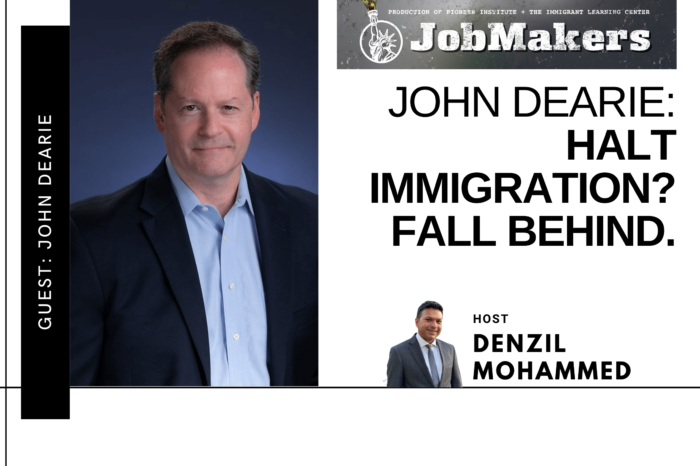John Dearie: Halt Immigration? Fall Behind
/in Economic Opportunity, Featured, JobMakers /by Editorial StaffThis week on JobMakers, host Denzil Mohammed talks with John Dearie, founder and president of the Center for American Entrepreneurship, a Washington, D.C.-based research, policy and advocacy organization. Immigration is core to his mission to build a policy environment that promotes entrepreneurship because he knows all too well that the United States was and continues to be built by entrepreneurial immigrants who had the drive and determination to pick up, leave everything they know behind, and build a new life in a new homeland. So to John, it is no surprise they are twice as likely to take another risk: start a business. He’s also seen across the country frustration among business owners, both U.S.-born and foreign-born, at an immigration system that works against this country’s interest. Why? Because it doesn’t seek to actively attract or retain talent from the rest of the world. John sees the decline in U.S. entrepreneurship and believes that more immigration, not less, would power the nation’s economy and innovation, which have made us the global leader. Instead, he’s seeing an unnecessarily partisan and toxic approach to immigration that, he says, harms us all and is inherently unamerican, as you’ll discover in this week’s JobMakers.
Guest:
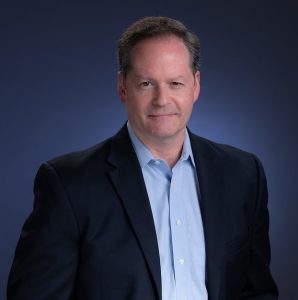 John Dearie is the founder and President of the Center for American Entrepreneurship. He is the former Acting CEO of the Financial Services Forum, a financial and economic policy organization comprised of the chief executive officers of the largest financial institutions with operations in the United States. From 2001 to 2015, he was the Forum’s Executive Vice President for Policy, coordinating the group’s policy agenda, which included: financial supervision reform, the competitiveness of U.S. capital markets, free and fair trade, comprehensive tax reform, debt and deficit reduction, and accelerating economic growth and job creation. Prior to joining the Forum, John spent nine years at the Federal Reserve Bank of New York where he held positions in the Banking Studies, Foreign Exchange, and Policy & Analysis areas. He was appointed an Officer of the Bank in 1996. He is the co-author of Where the Jobs Are: Entrepreneurship and the Soul of the American Economy (Wiley, 2013), which was called “one of the great economics books of the past few years” by the American Enterprise Institute. His writing has also appeared in The Wall Street Journal, The New York Times, The Financial Times, The Hill, Politico, American Banker, USA Today, and China’s Caijing Magazine.
John Dearie is the founder and President of the Center for American Entrepreneurship. He is the former Acting CEO of the Financial Services Forum, a financial and economic policy organization comprised of the chief executive officers of the largest financial institutions with operations in the United States. From 2001 to 2015, he was the Forum’s Executive Vice President for Policy, coordinating the group’s policy agenda, which included: financial supervision reform, the competitiveness of U.S. capital markets, free and fair trade, comprehensive tax reform, debt and deficit reduction, and accelerating economic growth and job creation. Prior to joining the Forum, John spent nine years at the Federal Reserve Bank of New York where he held positions in the Banking Studies, Foreign Exchange, and Policy & Analysis areas. He was appointed an Officer of the Bank in 1996. He is the co-author of Where the Jobs Are: Entrepreneurship and the Soul of the American Economy (Wiley, 2013), which was called “one of the great economics books of the past few years” by the American Enterprise Institute. His writing has also appeared in The Wall Street Journal, The New York Times, The Financial Times, The Hill, Politico, American Banker, USA Today, and China’s Caijing Magazine.
Get new episodes of JobMakers in your inbox!
Read a Transcript of This Episode:
Please excuse typos.
Denzil Mohammed:
I’m Denzil Mohammed, and this is JobMakers. [inaudible]
Denzil Mohammed:
The United States was and continues to be built by entrepreneurial immigrants who had the drive and determination to pick up, leave everything they know behind and to build a new life in a new Homeland. So it is no surprise. They are twice as likely to take another risk. Start a business for John Dearie, founder and president of the center for American entrepreneurship, a Washington DC based research policy and advocacy organization. Immigration is core to his mission to build a policy environment that promotes entrepreneurship because he knows this fact all too well. He’s also seen across the country frustration among business owners at an immigration system that works against this country’s interest. Why? Because it doesn’t seek to actively attract or retain talent from the rest of the world. John sees the decline in us entrepreneurship and believes that more immigration, not less would power, the nation’s economy and innovation, which have made us the global leader. Instead, he’s seeing an unnecessarily partisan and a toxic approach to immigration that he says harms us all and is inherently un-American. As you’ll discover in this week’s Jobmakers, John Dearie from the center for American entrepreneurship. How are you?
John Dearie:
I’m great. I’m great. Thanks so much for reaching out and invited me to participate.
Denzil Mohammed:
So tell me a little bit about the center and the kind of work that you’ve been doing. One. Why, why did you found this in the,
John Dearie:
So I spent the vast majority of my career in banking and financial policy. I started my career at the federal reserve bank of New York, and then spent, I was there for a decade and then spent 17 years at an organization called the financial services forum, which was a financial and economic policy group. I was the policy director there from 2001 to 2017. So I was there before, during and after the financial crisis, but as we came out of the financial crisis even as the economy started to grow again, the great recession ended in the spring of 2009. So by the spring of 2011, the recovery had been underway for two years. But the economy was growing very, very slowly and unemployment was still north of 9%. And there was a tremendous amount of frustration that you could feel in Washington.
John Dearie:
They had really thrown the kitchen sink at the problem policy-wise, but we’ve just, we’re not getting the kind of traction in terms of economic growth and job creation that everybody had been hoping for. And you could sort of feel a collective shrug in Washington by policy makers. Like, you know, we don’t know what else to do. And so I went to the CEO’s and said, you know, we need to do something new and innovative to come up with some new ideas to share with policy makers, how do we accelerate economic growth and job creation followed my nose through the through the research and eventually found my way to some research that that was new at the time, but was mounting and being repeated. And there was a lot of excitement about this showing the following three things, one that new businesses, not existing small businesses, but new businesses, startups are disproportionately responsible for the innovations that drive economic growth and job creation in the economy that they so they’re incredibly important from the standpoint of economic growth.
John Dearie:
Also incredibly important from the standpoint of job creation to two things that I was after. And and this was the really fascinating part that new business formation, which is to say entrepreneurship in the United States had been in decline for four decades. And I, and another colleague at the forum decided to do something quite simple and profound. And we decided to hit the road travel the country and conduct round tables with entrepreneurs all over the United States to get to the bottom of what was in entrepreneur’s way. And that’s essentially what we asked them what’s in your way. It was by way of a round table in Boston that I I, I think I met you and I met our mutual friend Bettina Hein. Who’s now on the board of CA. And they told us, and, and we collected extraordinary insights and data by way of that experience.
John Dearie:
We conducted round tables in 12 states around the country. Nobody in Washington knew this. I knew that because I was from Washington and I’d never heard it before. Entrepreneurship was utterly not on the radar screen in Washington as recently as 2017. And I decided we need an organization in order to change that we need a group on the ground doing the day-to-day blocking and tackling of engagement and education, and working with policy makers on that pro entrepreneurship agenda. And so I decided to leave the forum and become an entrepreneur myself Katie and I let my colleague Katie and Al and I like to refer to ourselves as policy preneurs. And we started the center for American entrepreneurship in July of 2017. Entrepreneurship is a very American idea. It’s not a Democrat or Republican idea. And and, and the role of immigrants in American entrepreneurship, the importance of immigrants and the history of immigrants as great American entrepreneurs is a major part of what we focus on.
Denzil Mohammed:
You talk about this being an American, a very American thing. And we know this from, from our history Levi’s and Budweiser, and course bear and up until the present, Google and LinkedIn and eBay where, w where exactly does immigration fit into policy agenda. I know for instance, that during the great recession that you, that you mentioned the financial crisis very markedly entrepreneurship among the U S born dropped by almost 50%, and yet it increased among the foreign born. What does that say to you, or how does that fit into your policy agenda?
John Dearie:
Yes well, it fits into our policy agenda in two ways, both from the standpoint of entrepreneurs themselves because immigrants are entrepreneurial by nature. And when you say that, you know, people sort of squint up their faces, like, you know, how do you mean when you think about it to be an immigrant to pick up your life, leave a culture that you’re familiar with your country, your family, your friends, often at tremendous personal and financial risk and go to another country, a new culture, often a new language that is a profoundly entrepreneurial act. And so it shouldn’t surprise us that once folks like that get here, they continue to be profoundly entrepreneurial. And in fact, the research has borne this out that, that immigrants are twice as likely to start a business as native born Americans.
John Dearie:
And so not withstanding the fact that they represent about 14% of the American population they represent about somewhere between 25 and 30% of the ownership of small businesses. And when you look at high-tech startups, you know, scalable high-tech high impact businesses started in Silicon valley. As many as half of those businesses are started by immigrants. So immigrants themselves are highly entrepreneurial. The other reason why it’s so important to us is, is entrepreneurs of all kinds, need skilled talent. And one thing that we heard at the round tables that we conducted around the United States is that there is a real talent gap or skills gap. And this is particularly relevant. You’ve heard this and read about it in the context of stem, science, technology, engineering, and mathematics American colleges and universities simply are not producing enough folks with those backgrounds.
John Dearie:
And so there is a skilled labor gap in this country for startups and other businesses. And and therefore there is great interest in great demand in foreign born talent. And the very first piece of research that we published after we launched was a research paper project by our research director at the time Ian Hathaway, who’s one of the great young scholars of entrepreneurship in the country and found that 47%, sorry, 43% of of fortune 500 companies and 57% of the top 35 companies were founded by either a first or second generation immigrant. So immigrants the history of entrepreneurship in the United States is a, is a an astonishing history of the contribution of immigrants to the United States in the U S economy. And you know, the 21st century economy is the knowledge economy.
John Dearie:
It’s the information economy, and it is going to be the competition for the 21st century is going to be won or lost based on human capital. And so it’s one of the realities, the unfortunate aspects of this issue that the political issue of immigration and the way that too large of a portion of our population and too many of our politicians think about and talk about this issue as if immigration is some sort of a threat to the United States when in fact is Ronald Reagan and, and lots of other politicians in the past have recognized immigration is one of the great sources of strength and, and, and, and and, and vigor and vitality and dynamism of the American experiment. And and we need to get back to that.
Denzil Mohammed:
You mentioned Ronald Reagan, who said, it’s at our peril. If we ignore this, this, this fact of this vigor and vitality that immigrants continue. I mean, it’s not a new phenomenon. Let’s make that very, very clear. Immigrants have always brought that entrepreneurial spirit with them whether as entrepreneurs or whether as workers and the children end up doing exponentially better very often than their parents did. And that’s the whole point of coming to the United States? What has been the policy response? I would say from politicians as you’ve done your work in the past four years,
John Dearie:
Too many people in the United States these days are of the view that the, they think about the U S economy as sort of a closed sandbox. And so if somebody is coming in from the outside, then w w within that construct or understanding of the economy, they are necessarily displacing somebody who was already here. And that’s of course not true. And the reason it’s not true is that the economy is not a sandbox. It’s this, it’s a dynamic organism it’s living and breathing. And when you, and when you change the inputs into the economy, specifically with regard to talent or labor, there was an economic reaction to that. And there is lots and lots. In fact, the vast preponderance of research on both the right and the left into this phenomenon of immigration make very, very clear that the contribution of immigrants to the United States is pro job creation for Americans.
John Dearie:
Immigrants do not take jobs of, of Americans do not displace Americans. They create new businesses that create new jobs, new opportunity, new wealth for Americans, for whatever reason, that is difficult for people to accept. It’s just too easy to think about the, you know, the economy in that sandbox, you know, sort of way you know, most folks are not economist and they’re, you know, they’re not particularly sophisticated in terms of their understanding of the economy. And so it’s a very easy topic to demagogue politically, and unfortunately too many politicians do that. Of course it makes it easier when there are legitimate crises having to do with immigration, like what’s going on in recent months at the Southern border, that is a legitimate problem. And the result is that our immigration system in this country is broken.
John Dearie:
Our immigration policies in this country are crazy. And when we do round tables around the United States, as we continue to do with entrepreneurs to stay in touch with the issues and the, and the priorities that matter to them, the issue that gets them, the angriest and where they really literally pound the table is immigration. They just, they can’t find the people that they need. They can’t get folks that they know that are, you know, are in foreign countries who are business partners, partners with them who are starting companies with them or talent that they’re aware of that they need desperately. They can’t get these people into the country in a secure and and predictable sort of way. And they, and they, they just, you know, for the life of them, can’t understand it because there is no understanding. It it’s completely contrary to the interest of the United States.
Denzil Mohammed:
Jeez, you’re unpacked a lot there, particularly that, you know, I spoke to a group of journalism students from Emerson, and the idea of immigration being the Southern border is paramount in the majority of Americans thinking they think of, of immigration, and that’s all they can come up with. And it’s so much more complex than that. So you mentioned that the, the response to, to, to your policy work has not been great. What briefly, what are some specific policy areas that you’ve been working on? Start-Up visas, for instance.
John Dearie:
So we have a number of, of, of, of immigration reform items that we advocate for. One is a startup visa, which I’ll come back to in a moment. The other one is graduation, Greek cards, as far as we’re concerned for all the reasons that you’re talking about. If immigrants who come here and are educated at American colleges and universities want to stay here after graduation, why on earth would we require them to leave? That’s our current policy is that they’re allowed in, on a student visa. And then after they complete their degree, we basically deport them in the very narrow interest of the United States. If folks want to stay here of their own volition, we’re not forcing them to stay, but if they want to stay here, why on earth would you not let them? So we’re in favor of graduation, green cards and other aspects of immigration reform.
John Dearie:
But back to the startup visa of the United States is one of the few industrial democracies around the world that does not have a visa category specifically intended to attract and retain foreign born entrepreneurs, specifically entrepreneurs who want to come to the United States to start their businesses and create jobs for Americans and contribute to the American economy, our economic competitors around the world. And I mean, many practically all of them you’re in Europe and Latin America. China obviously have overhauled their immigration policies in recent years, specifically to roll out the red carpet for foreign born entrepreneurs, including our entrepreneurs. They want them to come there often very generous off, you know, free office space capital access to capital at very low rates access to to mentoring and coaching. It’s all kinds of benefits, very, very attractive. Come here and start your business here.
John Dearie:
Meanwhile, the United States does not have such a visa category. And so we think that’s insane and we’ve been working very, very hard on, on creating this special visa category. For years since we launched in 2017, it’s been our, it’s been our top immigration priority. The good news is that working with other groups who are similarly minded and entrepreneurship focused like the national venture capital association, the angel capital association engine, and other groups around the country, we worked very closely with Congressman Zoloft grin from California who backed by say about six weeks ago, introduced a a bill that would create a startup visa. So the good news is that there is a bill in Congress now to create a start-up visa. The bad news is, is that not withstanding the incredibly hard work by us, NVCA engine, the angel capital association and others.
John Dearie:
We couldn’t get a single Republican in the house to co-sponsor the piece of legislation going back to what we were just talking about in terms of the unfortunate political dynamics around the topic of immigration. It is, it is unfortunately where the GOP base is at the moment after four years of a president who you know, in my opinion talked about the issue of immigration in the wrong way that it has become politically toxic for Republican members of Congress to support policies that would make it easier for immigrants to come to the United States, even immigrants who were coming here specifically in the context of entrepreneurs to start new businesses.
Denzil Mohammed:
That is absolutely fascinating that so many other countries are, as you say, rolling out the red carpet for people who want to start businesses. And you mentioned Bettina Hein who was on your board, what a story that is. She founded an incredible business in Boston right here. Pixability she explored every possible avenue, including the old visa which is for exceptionally talented people, including Nobel laureates. She was able to secure that, but that visa obviously ran out she’s now back in Europe because she was not able to remediate. There was no avenue for her to remain here, despite the fact that her children were born here, she raised a family here. She started a business employing hundreds of people over several years. That’s absolutely fascinating. Now, just get back to this idea, you know, obviously we’re shooting ourselves in the foot, but how American is this concept of immigrant entrepreneurship? Can you explore that a little bit?
John Dearie:
Sure. well, first of all, just let me say just very quickly to sort of emphasize what, what you just said about we’re shooting ourselves in the foot and, and, and how are our insane immigration policies, particularly over the last four years have been a great boon to Canada. There were more technology jobs created in Toronto in 2018 is the latest data than were created in Silicon valley New York city and Washington DC combined. And the reason for that is that when, when the president of the United States talks about immigration and talks about immigrants in the language that their former president talked about, it sends the message to the rest of the world don’t come. And so they don’t, and yes, Bettina Hein is a marvelous example of this issue. And I, and I just won’t bump, I’d love to tell this story just very quick, the round table at which I met patina, but there were two other people at that round table.
John Dearie:
And this example was so vivid. I included it in my book that I subsequently wrote that these were two guys who were, were roommates at MIT as undergrads started a business when we met them that they had graduated from MIT, they had just gotten their second round of funding. They had expanded their company from just the two of them to, to 15 other people. And so they were growing and these two best friends from college straight guys were considering getting married in order to keep the foreign born founder in the country because his visa had run out and he was about to be deported.
John Dearie:
I mean, I will never forget that story. That that’s the desperation of these people. These two straight guys were thinking of getting married, just to keep the foreign born after in the country. I mean, it’s a funny story, but, but it’s of course horrifying. And, and, and I just tell that because it was the most vivid example to me of just how crazy our immigration policies are, but back to the history of immigration in the United States you know, it’s been, it’s easier or harder over the course of our, our, our history for immigrants to come here. But of course there’s been a very, very important and very special part of our history here in the United States is the history of immigration. The the, you know, the great analogy of the United States of being the melting pot of, of many people from all over the world with all their different ideas, their, their their, their various talents, their languages, the food, the music, you know, the, that, that the American experience is, is the melting pot of all of these experience from all over the world.
John Dearie:
And what comes out of that melting process is the secret sauce of America. That’s what Ronald Reagan I think was referring to. And in his great speech, the last speech he gave before he walked out of the white house was the importance of immigration to the United States, not just, you know, the American experience and how we think about ourselves, but economically how important it was and politically, and he said, if we ever lose sight of that, if we ever lose sight of how important this is, to who we are, it is, as you said before at our peril, what could be more American than taking in a baseball game on a great afternoon, having a couple of Budweiser’s a couple of hot dogs and singing, God bless America at the seventh inning stretch. What could be more American? It’s hard to think of something more American than that, right? Baseball is a British game that came to the United States by way of Canada, the beers and the hotdogs are German. And the song, God bless America was written by a Russian born Jew named Irving Berlin. But the result when you put them all together, these contributions from immigrants all over the world, you create something uniquely American that’s America,
Denzil Mohammed:
John Dearie, from the center for American entrepreneurship. Thank you so much for joining us and Jobmakers. I really appreciate you taking the time to do this and best of luck as you are advocating for.
John Dearie:
Thank you very much. I really appreciate the opportunity. It’s great to see you. I’m sorry. It’s been so long.
Denzil Mohammed:
Jobmakers is a weekly podcast about immigrant entrepreneurship and contribution produced by pioneer Institute. A think tank in Boston and the immigrant learning center, a not-for-profit that gives immigrants a voice. Thank you for joining us for this. Week’s fascinating story of the benefits of welcoming, talented, and driven immigrants to the United States. If you have feedback or know someone who we should talk to email Denzil that’s, D E N Z I L at jobmakerspodcast.org, I’m Denzil Mohammed. Join us next Thursday at noon for another episode of Jobmakers.
Browse recent episodes:
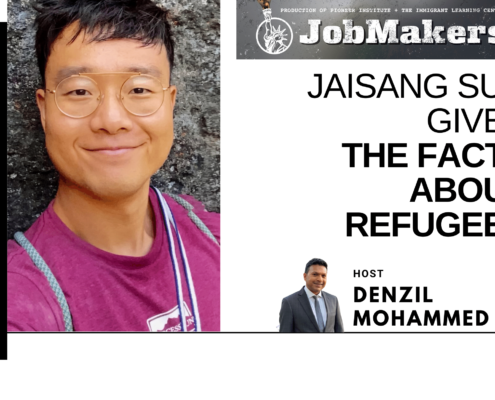
Jaisang Sun Gives the Facts About Refugees
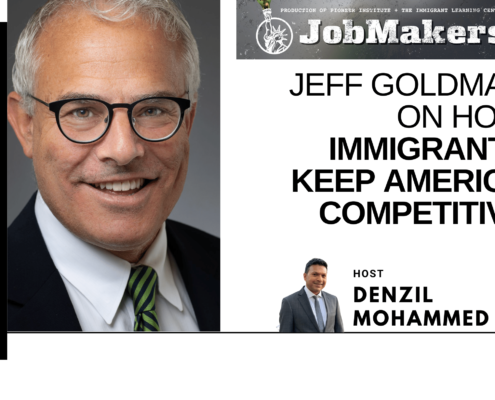
Jeff Goldman on How Immigrants Keep America Competitive

Trevor Mattos Shows How Massachusetts Runs on Immigrants

Danielle Goldman on Why the U.S. Needs Immigrant Talent
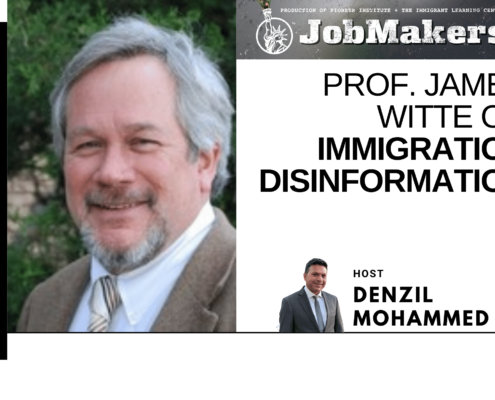
Prof. James Witte on Immigration Disinformation
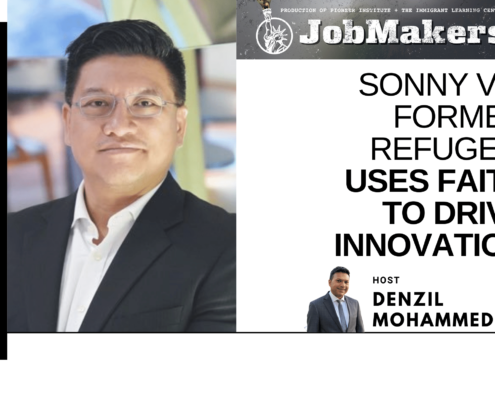
Sonny Vu, Former Refugee, Uses Faith to Drive Innovation
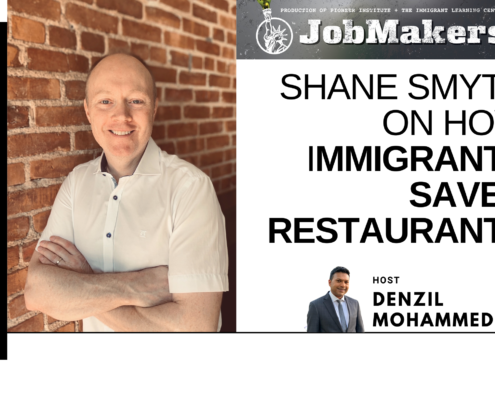
Shane Smyth on How Immigrants Saved Restaurants


